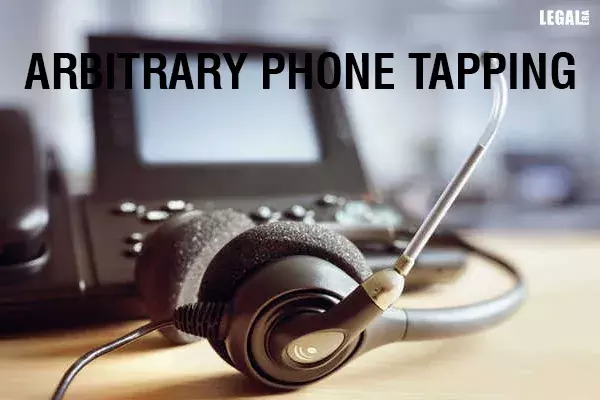Rajasthan High Court: Willful Phone Tapping Orders Violate Right to Privacy
The Rajasthan High Court has held that surveillance without procedural safeguards offends an individual's fundamental right;

Rajasthan High Court: Willful Phone Tapping Orders Violate Right to Privacy
Directs authorities to destroy the intercepted messages and recordings
The Rajasthan High Court has held that surveillance without procedural safeguards offends an individual's fundamental right to privacy.
In the Shashikant Joshi vs State of Rajasthan case, the Court quashed the three phone-tapping orders passed by the state's home ministry. Noting that the state failed to record any reason in writing for doing so, it further directed the authorities to destroy the intercepted messages and recordings from the tapped phone.
The Bench of Justice Birendra Kumar noted that the Indian Telegraph Act provided procedural safeguards to prevent arbitrary infringement of the right to privacy, which must be strictly followed.
The Judgment read, "The required mandates could not have been ignored or superseded by the State or its machinery leading to offending the right under Articles 19 and 21 of the Constitution of India. If the directions of the Supreme Court in the PUCL case, which has been reinforced and approved by the Apex Court in the Justice KS Puttaswamy vs Union of India case, as well as mandates of the Acts and Rules are allowed to be flouted to affect illegal interception of messages, it would lead to breeding contempt and arbitrariness.”
In 2020 and 2021 the State Home Ministry passed three orders to 'intercept the mobile phone' of the accused, including the petitioner, in a bribery case. The authorities justified the phone tapping under the Indian Telegraph Act, alleging that the petitioner was involved in bribing a public servant.
The prosecution contended that following the interception of the phone, a first information report (FIR) was registered under the relevant provisions of the Prevention of Corruption Act.
The petitioner challenged the orders stating that the state infringed on his right to privacy by putting his mobile phone under surveillance.
The bench noted, "The authorities have failed to record any reason in writing required in sub-section (2) of Section 5 of the Telegraph Act. Therefore, the impugned orders suffer from arbitrariness and violate the constitutional right of the petitioner.”
The Judge added, “If allowed to stand, it would permit violation of the fundamental rights of the citizens and the law laid down by the Supreme Court. Therefore, all three interception orders stand quashed. The authorities are directed to destroy the intercepted messages and recordings.”
The bBench also clarified that the messages intercepted from the petitioner's mobile phone shall not be considered in the pending criminal proceedings.
While advocates Swadeep Singh Hora, Mohit Khandelwal, TC Sharma, and Vishivas Saini appeared for the petitioners, the state was represented by the government’s deputy advocate Atul Sharma.


